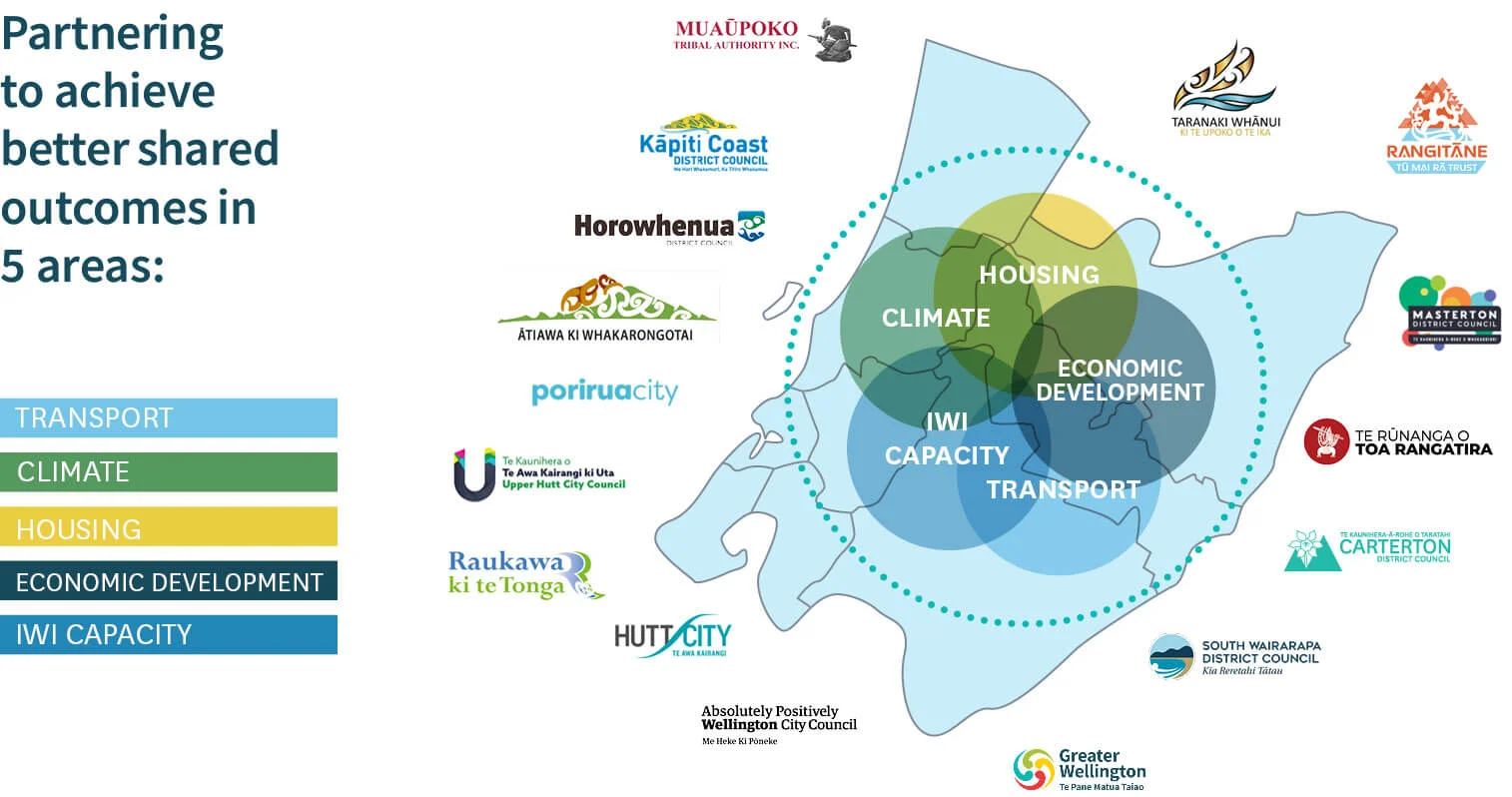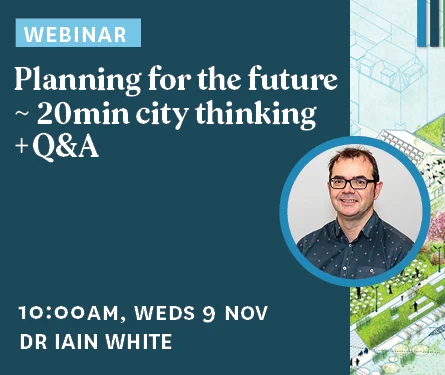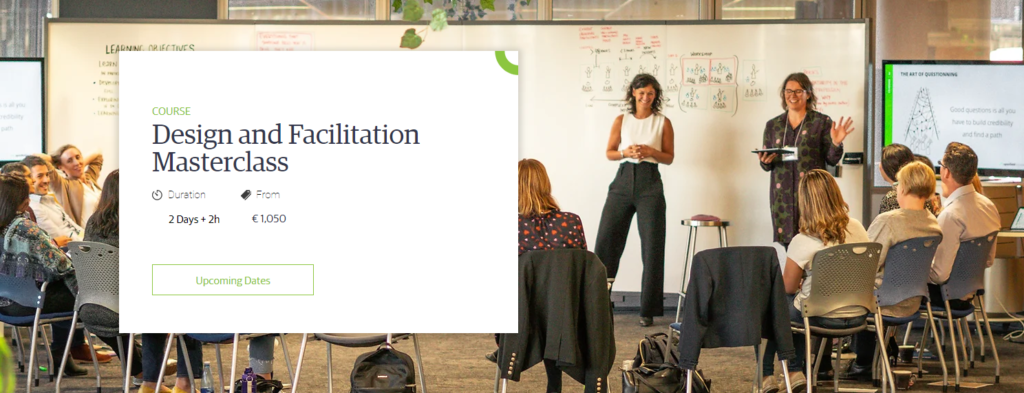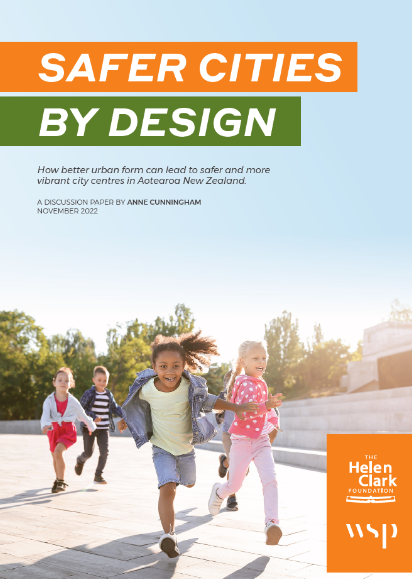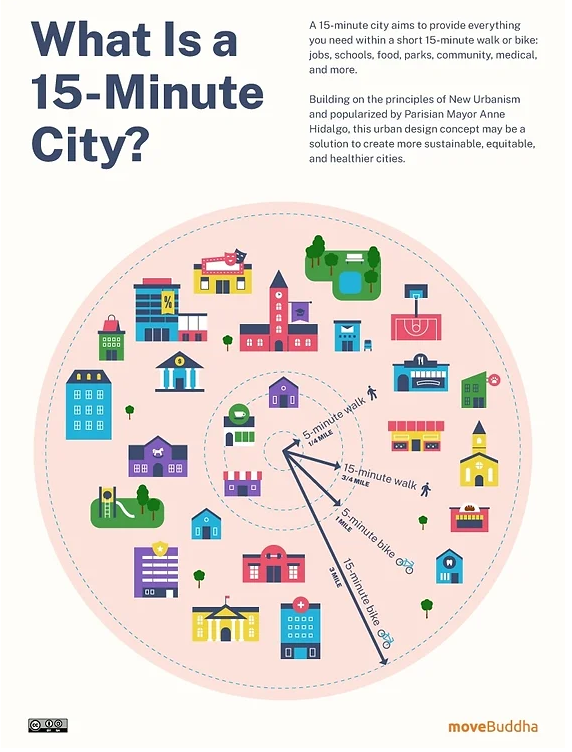Kia ora koutou and welcome to November’s pānui | eNews, featuring:
- Webinar recording available – Dr Iain White
- Regional Economic Development Plan – progress update
- Kāinga Ora’s new Environment Strategy
- Opportunity: 2-day Facilitation Training
- Kia pai te raumati! How to make your summer ka rawe
- Sector Events & News
- Helen Clark Foundation Latest report – Safer Cities by Design
Webinar recording available: Dr Iain White – What do people really want from their neighbourhoods and cities?
The 15/20 minute city/neighbourhood is a widely discussed concept as a way to reduce carbon emissions, improve livability, and make local economies more resilient, but how do we translate this agenda from a top-down technical expert exercise, to one that recognises difference and equity?
In this talk, Dr White shared findings from a national survey conducted in Aotearoa in 2020 aiming to provide evidence on these issues, providing insights into what people really want from good planning, and in their neighbourhoods and cities.
Dr White discussed various data from the survey, such as which amenities people prefer to live closer to, how much time people will travel for various amenities, and how this differs between walking, cycling or micro-mobility, between populations, and between time of day. This data is useful for policy-makers looking for evidence to inform city/regional strategies, or how to temper growth imperatives with a parallel focus on growing well and navigating the difficult local politics involved with urban change.
Regional Economic Development Plan Underway
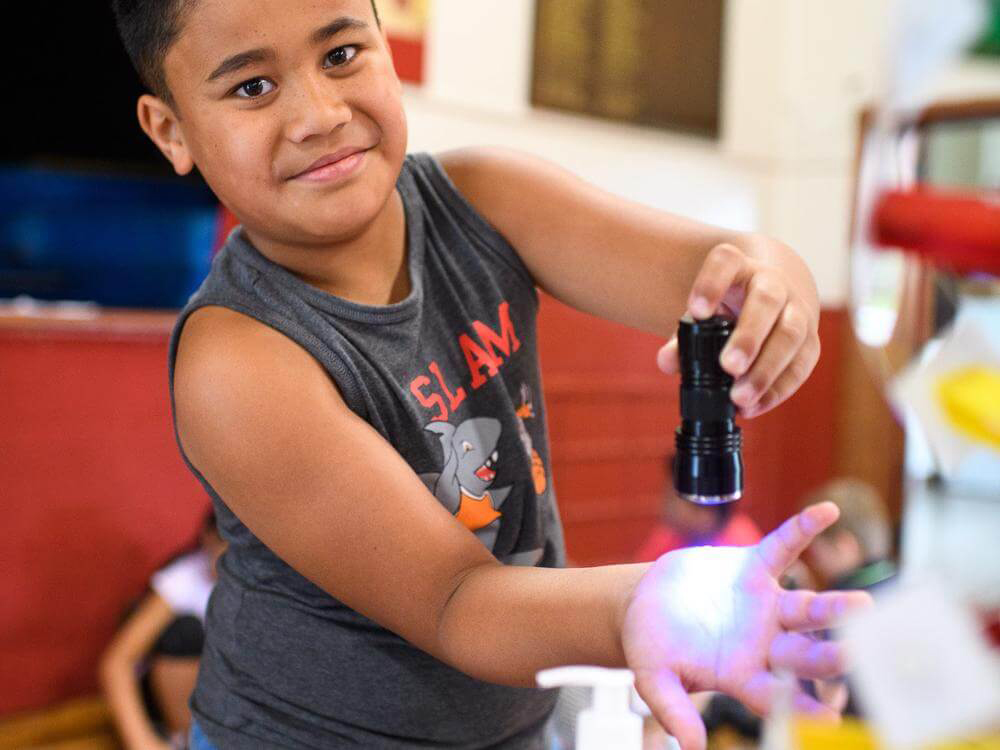
Implementation of the REDP is progressing skills, talent and education across the region.
Image: A Year 5 student from Naenae School learning about environmental DNA with a House of Science resource kit
WellingtonNZ are driving implementation of the Regional Economic Development Plan (REDP) on behalf of the WRLC. Work is underway to implement the 33 initiatives within the REDP, with current highlights including progress on initiatives that contribute to skills, talent and education across our region. These include:
Pasifika business enablement – Louis Lagaluga Hutchings has joined WellingtonNZ for summer through the Tupu Toa Internship Programme. Louis is exploring options to grow the capability and capacity of Pasifika businesses and is keen to hear what support and/or programmes would be most useful as he identifies a shortlist of options. Click here to find out more and contact Louis.
House of Science – WellingtonNZ are working alongside House of Science New Zealand to help them expand their programme across primary and secondary schools across our region – empowering teachers to raise scientific literacy.
Summer of Engineering – this pilot matches mechnical engineering interns and graduates with employers.
Kāinga Ora’s new Environment Strategy
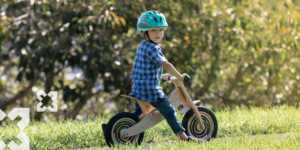 A systems-focused approach to delivering key environmental outcomes
A systems-focused approach to delivering key environmental outcomes
Kāinga Ora is one of our key partners in delivering better housing and urban development outcomes for the region.
Kāinga Ora recently released their Environment Strategy, designed to ensure that all their work is underpinned by a strong focus on the delivery of positive environmental outcomes for present and future customers, communities and neighbourhoods.
The Strategy demonstrates quality over quantity, and articulates three key principles, four key outcomes, and 10 key strategic moves in three broad categories of Organisational, Housing, and Urban Development. These form a clear roadmap to guide and accelerate Kāinga Ora’s delivery of positive environmental outcomes for present and future customers, communities and neighbourhoods.
The Strategy takes a holistic and system-focused approach to delivering environmental outcomes, recognising both the interlinkages between environmental issues as well as the manner in which our natural environmental underpins broader social, cultural and economic outcomes.
The Strategy embeds collaboration, climate-conscious decisions and Māori aspirations in the way Kāinga Ora works – providing a blueprint that can add value for any organisation.
Importantly, the Strategy recognises that successful urban development reiies on a strong, integrated environmental focus.
Exciting Training Opportunity: Two day Collaborative Design & Facilitation Masterclass – Q1 2023
Do you need to bring diverse stakeholders together to workshop complex issues?
Designing for and facilitating effective collaboration has now become a key organisational skill, particularly in the public sector, where diverse stakeholders need to be bought together to address complex problems. Being able to facilitate effective collaboration is critical for effective problem-solving, drives higher team engagement and gets better outcomes faster.
Designing for and facilitating effective collaboration has now become a key organisational skill, particularly in the public sector, where diverse stakeholders need to be bought together to address complex problems. Being able to facilitate effective collaboration is critical for effective problem-solving, drives higher team engagement and gets better outcomes faster.
Learning outcomes
- Openfield Institute have developed a 2-day Design & Facilitation Masterclass to help you the mindset and skillset to co-design and deliver collaborative workshops with greater confidence.
- Explore the use of models and the art of questions as key enablers of the co-design practice.
- Learn structured processes and tools to develop your practice.
The course is designed as an intensive 2-day, experiential deep dive into the world of collaboration design and facilitation, followed by a 2-hour virtual session two or three months later to reflect on the path taken and to anchor teachings in your daily practice.
Read more about the key topics, learning outcomes, who should attend, and the facilitators, at the button below.
Kia pai te raumati! How to make your summer ka rawe
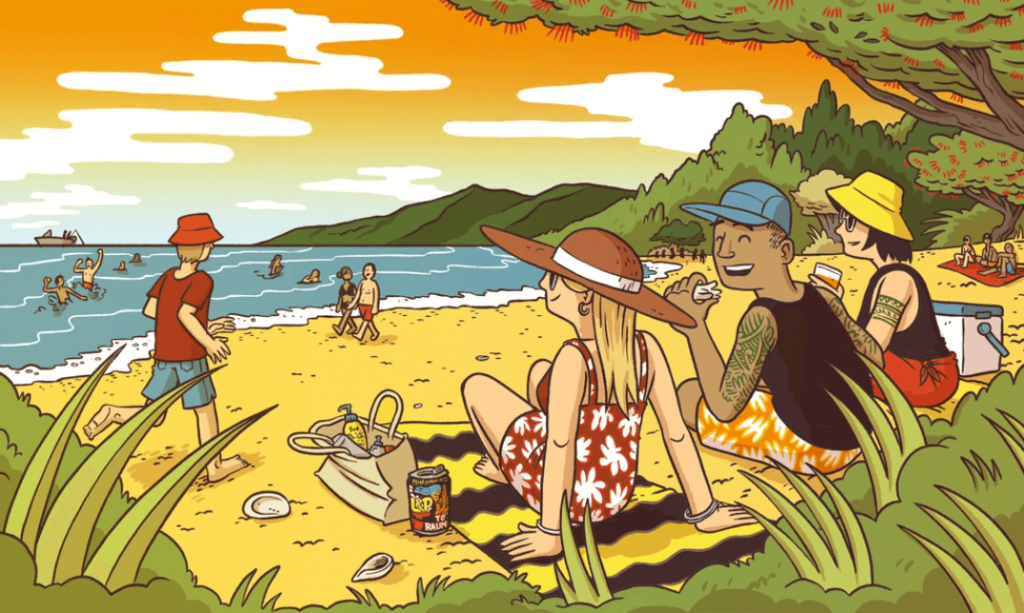
As a summer of restoration and reconnection approaches, this article is a helpful guide for making the most of a long, hot raumati (reproduced with permission from The Spinoff).
Co-governance is an ongoing journey that the WRLC is committed to getting right, as we collectively weave together our kōrero and learnings, to achieve better longterm outcomes for all.
A key project we have underway is our Iwi Capacity and Capability Project, designed to explore and activate opportunities to enable iwi participation in local and central government mahi.
We all benefit from the Te Āo Maori worldview, which has embodied ‘systems-thinking’ long before it entered to modern lexicon. Te ao Māori reconises that people’s health is inseparably intertwined with nature’s health; and that our actions today, should be made with an eye to the future.
We’re proud to share this article for some inspiration as we head into raumati (summer), and support our collective journey to connect with te rēo and Mātauranga Māori (Māori knowledge.)
Sector News
Safer Cities by Design – Anne Cunningham, HCF & WSP
How can make our public spaces safer through urban design choices.
Safer Cities By Design is the Helen Clark Foundation’s latest discussion paper in partnership with WSP in New Zealand. The paper recommends bringing together diverse perspectives and expertise in establishing safe urban places. It also calls for urban public places to be designed in a way that restores mana and mauri Māori.
Why Cities are key to the Future – Dr Catherine Knight
This personal account of carving out a rural life and then consciously switching back to urban, raises important questions. What makes you want to live in a place? What do you want within walking and cycling distance? 86% of Kiwis live in towns and cities, so how we design, build and retrofit our urban areas will be key to a low-emissions, energy efficient future.
Dr Catherine Knight is a public policy professional, an award-winning author and environmental history researcher.
About the Wellington Regional Leadership Committee
WRLC is a joint regional partnership which brings together Iwi leaders, Mayors, Ministers of Government, and an independent chair, to work collaboratively on cross-boundary, growth-related challenges in the Wellington-Wairarapa-Horowhenua region.
WRLC exists to find better ways of working together to ensure that our region continues to be a place where people want to live, work and thrive.
Our projects cover five broad key areas that are integral to our shared growth-related cross-boundary challenges. These five areas are iwi capacity, housing, climate, transport and economic development and recovery. Read more about our work on our project page, and if you’re interested in collaborating, sharing information and finding alignment – get in touch at hello@wrlc.org.nz.
